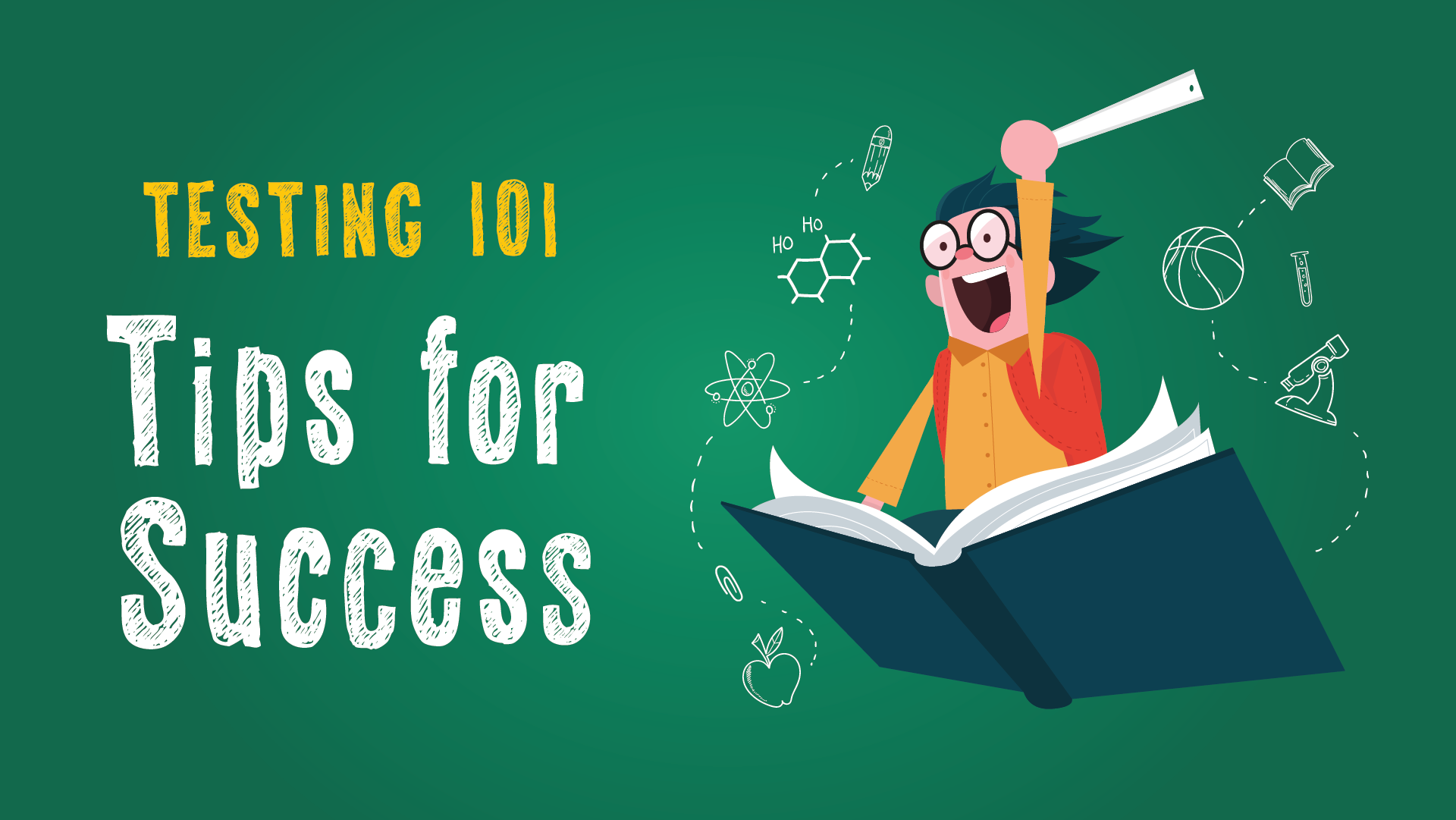
Exams are stressful. Period. They are also quite inevitable if you're trying to obtain your degree, diploma, or complete a course. There are ways to lessen those feelings of panic that extend past getting a good night's sleep and being on time - even though those are important too!
Whether you'll be writing multiple choice or written exams this semester - or maybe both?! - we have some tips for preparing for exams.
For more help, you might also want to check out the workshops and services offered by the Academic Success Centre, and be sure to make time for wellness -there are Health & Wellness resources that can help with that.
The written exam is perhaps the most infamous syllabus item on campus. For some, there is nothing more terrifying than a blank piece of paper and a time limit. Without the comfort of multiple-choice answers, it can often seem like essay questions are completely up in the air.
Even if you don't receive the written questions ahead of time, you don't have to arrive empty-handed. Using metaphors from medicine to astrology, I would like to share the written exam wisdom I've learned throughout the four years of my honours arts degree.

Dissect the Question
If you are given sample questions ahead of time, start your study session with a pen and highlighter. Pretend you are a doctor identifying the different "organs" of the question. Often, you might find multiple sub-questions buried within the main question - underline them and remember to answer each on exam day! Next, highlight your verbs; there's a big difference between being asked to "describe" a phenomenon and being asked to "argue" a point. Verbs are "action words," which tell you where you need to go in your essay question.

Stock Up on Vocab
Think of vocabulary as "bomb words," which you can drop in your essay for a huge effect. And I'm not talking about anxiously skimming your thesaurus the night before the exam. While some professors may be impressed by fancy words, they will be even more impressed if you can integrate key terminology from readings and lectures into your writing. Make a list of five key terms you plan to use in your written exam, which will demonstrate your understanding of the material.

Build the Scaffolding
Planning your entire essay response or even writing out a mock version the night before the exam can be extremely intimidating. Instead, imagine yourself as a construction worker who is building the scaffolding of your "building," or essay. Every good building needs blocks, or the main points of your essay. Jot these main points/blocks down, then organize them into "pillars," or the overarching themes of your essay. Together, these pillars hold up your argument.

Find Connections, Not Content
University lectures often focus on content: the names, dates, and facts of the course. However, arts exams often ask you to take all these facts and turn them into something bigger: a discussion or argument. Naming all the stars in the milky way does not tell us nearly as much as looking at the phenomenon as a whole. Create a mind map of your course content and draw lines between the concepts that connect - look for patterns. Often these connections will form the basis of your arguments, rather than the content itself.
Written by Freya.Freya.
During the test:
● Answer the questions you know first.
● If you are stuck on a question, flag it, and return to it later.
● Use your time wisely. Finishing a test early will not give you extra points.
● Avoid spending too much time on every single question.
● Make sure you have answered all the questions before handing in your test. You can't get marks if you don't at least try!
When reading a question:
● Read the entire question before reviewing the response options. This will help your mind process the question more effectively.
● Pay attention to wording. Although some questions can be worded negatively (e.g., which of the following is not …), our eyes tend to read the question positively.
● Pay attention to absolute words such as always and never. Response options including these words can be eliminated easily if you can think of a counterexample where always or never would not be true.
When selecting a response option:
● Read every response option before choosing one.
● Use the process of elimination. Cross out the response options that you think are incorrect and continue to narrow it down until you have an answer.
● Make an educated guess for any question you are unsure of instead of choosing an answer randomly.
● Do not believe in testing myths like the longest answer is more likely to be correct, or the answer is always "C."
● If you are second-guessing, always stick to your first choice answer. Typically the first answer that pops into your mind is usually the correct one.
Written by Taylor Downing in Information Services and Technology and Okan Bulut, Associate Professor in the Centre for Research in Applied Measurement and Evaluation with the Faculty of Education.Information Services and Technology and Okan Bulut, Associate Professor in the Centre for Research in Applied Measurement and Evaluation with the Faculty of Education.